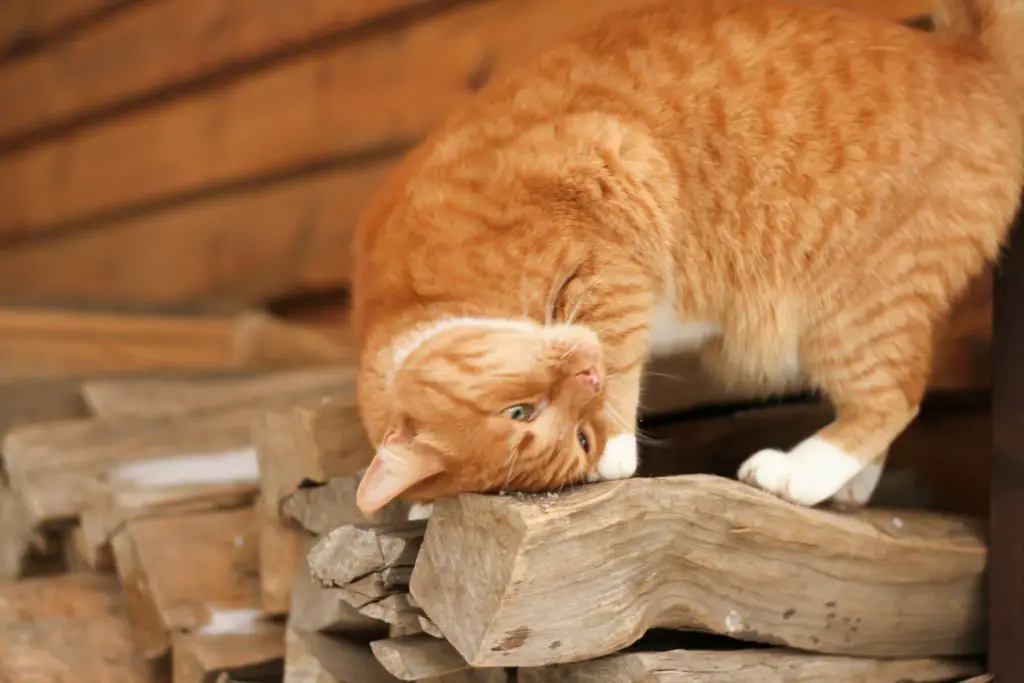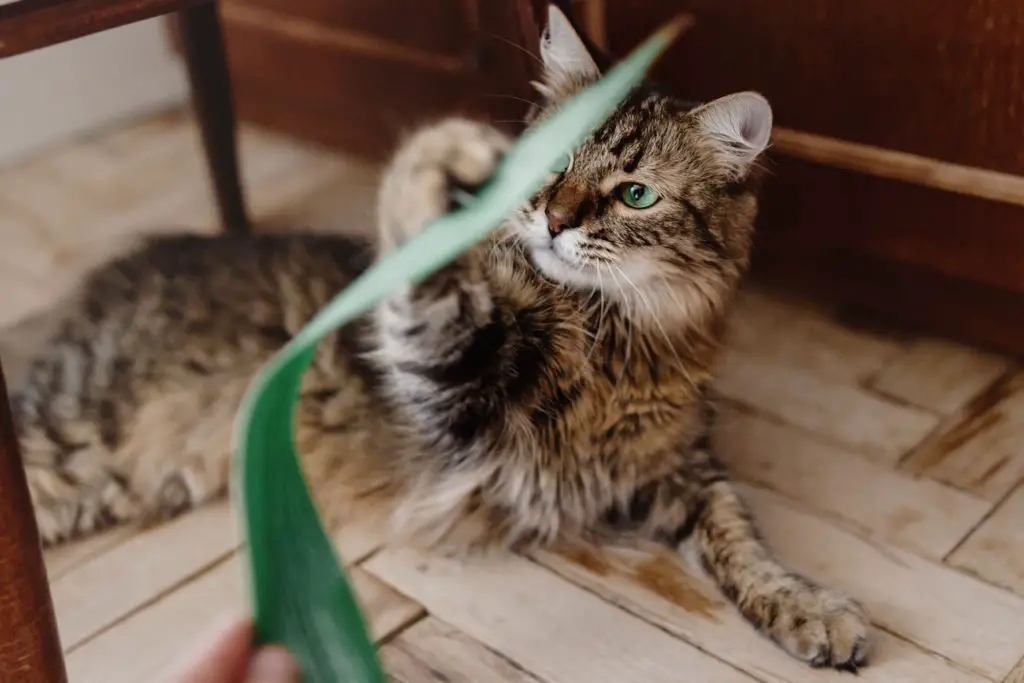What are the main signs that your cat is adjusting to its new home? In most cases, a cat adjusting to its new home will exhibit more positive body language and be more curious about its surroundings, including having a larger appetite. It will purr happily instead of crying or meowing constantly. It will also become more independent instead of being clingy or attention-seeking.

Many cat owners do not realize that their cats need plenty of time to adjust to their new surroundings. It is no wonder, exhibit a lot of signs of stress after relocating to a new home. Cats are territorial creatures, and they hate being uprooted from their surroundings. Like humans, cats want a comfortable and reliable environment to feel safe and secure.
Of course, it is entirely possible to ensure that your cat does adjust to its new home with time. I have already covered the important topic of ‘How long does it take for a cat to adjust to its new home?’.
Signs Your Cat Is Adjusting to Its New Home (The Long Answer)
Here are some signs that a cat likes its new home or rescued/adopted/re-homed cat is fond of its new dwellings:
Exhibit Positive Body Language Behaviors
These positive body languages signs are:
- More grooming behaviors
- Tail upright or relaxed instead of curled up around its body
- Sleepy or slow eye movements
- Start exposing more vulnerable parts of their body such as their belly (but no belly rubs yet!)

Cats convey a lot through their body language. A relocation can make a cat uncomfortable and timid as it is unsure about its new environment. This can be easily seen through its body language. A sad cat will have decreased activity and may hide or sleep more. It won’t be its usual bubbly and cheerful self, at least initially.
However, most cats are able to completely adjust to their new home within 3-5 days of re-homing – as long as you do things right. It is best to restrict your cat to one room, which will help it get familiar with the surroundings. Once your cat adjusts, it will bounce back to its original state.
Start to Rub and Deposit Their Scent
Cats are naturally comforted by the scent of themselves. For cats, being familiar with their environment means that the environment has to smell like them. Studies have shown that cats have a strong olfactory sense that gives them a sense of spatial awareness.

If you see your cat start to rub on vertical surfaces or roll back and forth on the carpet or rug, then it’s likely that they’re depositing their scent to get more familiar with their environment. Items around the home that contains your cat’s scent create their ‘cat space,’ and such, cats prefer furniture, toys, and other things that smell like them!
More Curious About Its Surroundings
If a cat that cowers and hides is clearly uncomfortable about the relocation. Conversely, if a cat is curiously examining its surroundings, it is alert, happy, and clearly interested in its new home.

Remember: cats are naturally curious. Sure, some may be more cautious than others, but a well-adjusted cat will show curiosity as one of its personality traits. It will start to wander out of its comfort zone and explore other zones, and it might even sprawl around out in the open with its belly exposed!
This is a clear sign that your cat is getting confident and comfortable in the new place.
Less Frequent Vocalizations
Cats that are depressed may frequently meow in their new home, and they miss their familiar surroundings and the comforts of their old home.
The new home might trigger anxiety in the cat, as a result of which it might constantly cry or meow. Of course, most cats will meow on their first night in the new house, but the calling should ease out over the next few days.
A cat that has fully adjusted to its new home will not cry or meow. If it does meow, it will be the right kind of occasional meow for treats or attention from its owner.
More Frequent Use of the Litter Box
Cats that haven’t adjusted to their new home are more likely to display litter box avoidance behavior, and thus, they might urinate or defecate outside the box.
On the other hand, a well-adjusted cat will use its litter box happily. It is important to place the pet’s litter box in the room to which you have confined it and make sure the litter box is not too close to its food and water bowls.
Additionally, litter box placement plays a large part in how well your cat might adjust to its surroundings. The litter contains a lot of your cat’s scent, and there are two anal glands on each side of a cat’s rectum to mark the stool that passes through. Thus, placing litter boxes in key high-traffic areas of the home can significantly speed up the adjustment time for your cat to get acquainted with the new home.
Larger Apetite & More Playful
Cats that are uprooted from their familiar territories are known to get aggressive or fearful. Which usually means they aren’t focused on eating or drinking. However, if you see your cat start to search or has an interest in food – that means that it’s starting to become more comfortable.

Therefore, always have a variety of different cat food available to start coaxing to be more comfortable with you and your new home as cats are inherently neophilic (enjoy variety in foods). Soon after their bellies are full, their usual course of action is to explore and find something to play with!
Conclusion: Signs Your Cat Is Adjusting to Its New Home
Several signs indicate your cat likes its new home. It will be cheerful, playful, and curious, and it will also use its litter box regularly and eat and sleep normally.
Give your cat plenty of love, attention, and affection in the new place but don’t be too overbearing on your cat or kitten. Give them their own time to adjust and, instead, put your attention on creating an environment for your cat to exhibit all types of behaviors. This will help it adjust a lot more easily to its new home. With time, your cat will bounce back.
Of course, it still shows signs of depression such as appetite changes, hiding, or litter box issues, or it keeps getting aggressive, then please see a vet right away.

I have become a cat lady after having only dogs for approximately 50 years..Quincy Eli arrived first 4 years ago at 7 weeks for a small charge..he is beautiful ! I was feeding a group of 4-5 everyday/night outside..Stella Grace convinced me that same year she wanted to live here..she was a young adult..then Cedric Niles an older kitten not adult yet..came from somewhere..he wanted to stay..he did..now over a year Zelda Joy yet an older kitten/not a grown cat arrived carrying a large pregnancy..after all the kittens..her spaying, shots etc I brought her in..so now I have 4..all have been ‘fixed’ and live the life..they are a complete joy and I have my own clowns..they get along..thankful for that..the kittens got homes she was unable to feed them all..I am pleased how all of it has worked out..4 is my limit on room and finances..they are a joy..no 2 even close to being anything alike..
hi.ive just adopted a 3yr old cat….she seems quite happy purring and sitting next to my pillow.but she wants to go out…scratching the window…I’ve shown her her litter tray in the bathroom.but she runs back into the bedroom…so I put the tray in the bedroom for now.to see if it helps..but she still absent gone in it.im so worried she wants a pre…..but she I sent allowed out for 8 weeks….she has only been hear 8hrs.
I’ve had my kitty Onix from a kitten..but we moved..he was 2..now 4 he seems to be doing fine..flys all over the place.. with his sister China Bear dogie..she’s 4 as well..the grew up together..
It’s a small Apt but we make it work.. happy family
Bella..
Got a young kitten. She was very affectionate in the shelter. Very vocal about getting attention
Got her home. Tried to get her as close as possible to us. She gets plenty of ‘personal’ time in her very large crate with many toys. She’s interrupted every hour or so for petting and cuddles
I put an XS harness on her and allow her to search the house on her own butt restrained by a small leash
She loves attention and understands that she has some boundaries. At night she’s moved to a smaller crate and brought up to the bedroom for a very quiet PM
Lots of preening herself now. She loves to get out of her crate and stretches a lot so I lead her around for some exercise. she seems to be very happy and snuggles up against me when she needs to relax.
I think I’m blessed😇
I recently moved in with my sister and I have two older fixed female cats. She has 2 labs fixed 1 male and 1 female. I let the cats out of my room, which has a towel scent of the dogs and I did it for the cats. However my tuxedo cat is quite cautious and my other one is laid back. How can I help them adjust. I had been six days. Any advice?